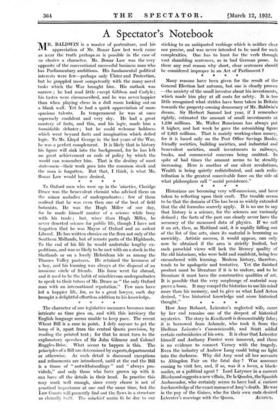Historians are becoming very self-conscious, and have taken to reflecting
upon their craft: The trouble seems to be that the domain of Clio has bccn so widely extended that the old formulas scarcely apply.. It is no use to say that history is a science, for the sciences are variously defined ; the facts of the past can clearly never have the accuracy of the measured data of physics. If we call it an art, then, as Maitland said, it is rapidly falling out of the list of fine arts, since its material is becoming so unwieldy. Artistic success, it would appear, can only now be obtained if the area is strictly limited, but such parochial views will lack the literary .quality of the old historians, who were bold and confident, tieing less encumbered with learning. Modern history,- therefore, tends to be apologetic and tentative. Yet the finished product must be literature if it is to endure, and to be literature it must have the constructive qualities of art: It is possible that the very "surplusage of material may prove a belOn. It May-compel the historian to use his mind
More than his memory, and give us what Lord Acton . . . . desired, " less historical knowledge and more historical thought." * * * *


















































 Previous page
Previous page